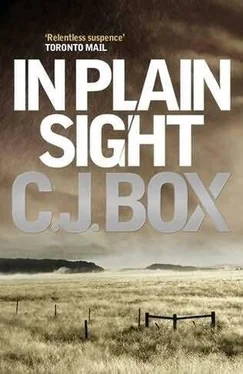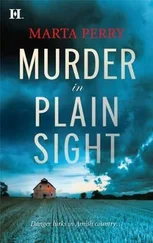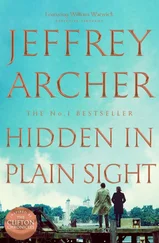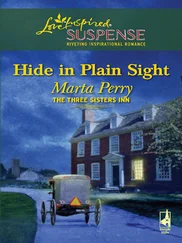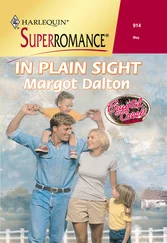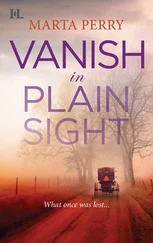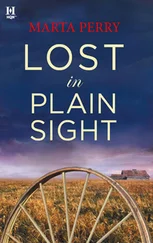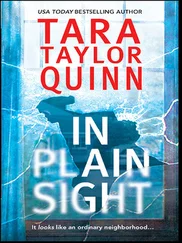That seemed to be McLanahan’s intent with Joe as well, to sniff at him.
“That’s it, eh?” McLanahan asked, pointing over Joe’s shoulder at the Miller’s weasel on his door.
“That’s it,” Joe said, watching McLanahan pull on his jacket.
“Happened last night, huh?”
“Yup.”
“But you waited until this morning to call.”
“Yes, I did.”
“Woulda helped if you’d called last night,” McLanahan said, entering the yard and shuffling past Joe. “Before the blood dried and all the evidence was fouled up. I suppose you’ve touched the knife handle, and opened the fence, all of that.”
“I’m afraid so,” Joe said, embarrassed.
McLanahan turned to him stiffly. He moved as if he’d just dismounted after a long horseback trek. “D’you know who did it?”
Joe shrugged. “Someone who wants to send a message. You remember the history on that Miller’s weasel.”
McLanahan nodded. “Well,” he said, reaching up and smoothing both sides of his mustache with a meaty index finger in a surprisingly effete gesture, “I ain’t got much to go on, since you already fouled up the crime scene and you can’t tell me anything.”
“Nope, I guess you don’t,” Joe said, frustrated.
McLanahan ambled back toward his pickup. “You let me know if something else happens, all right? Or if you hear anything about who mighta’ done this? You’ll call, right?”
Joe sighed. “I’ll call.”
The sheriff opened the door of his truck to let his dog bound in, then stopped suddenly and looked up at the sky. Joe followed McLanahan’s gaze, puzzled. A V of geese was outlined against a massive cumulous cloud.
“I like to watch the geese,” McLanahan said, as if it were something profound. Then he looked back at Joe and squinted his eyes. “Next time, call me right away. Don’t wait twelve hours, pardner.”
“A MILLER’S WEASEL?” ROBEY ASKED, SITTING BACK in the booth at the Stockman bar. “No shit. Where would someone even find one?”
Joe sipped his beer, his third of the night thus far. It was Saturday night. The Stockman bar in downtown Saddlestring was a long, narrow chute of a place that stretched back the entire length of the city block. It was a classic, old-fashioned western bar with dusty big-game mounts on the walls, a dark knotty-pine interior, a mirrored backbar, and an entire wall of ancient black-and-white rodeo photos. Between the bar and the pool tables in the back was a pod of private booths with red-vinyl-covered seats and scarred tabletops emblazoned with local cattle brands, graffiti, and the initials of patrons dating back to the 1940s.
Joe said, “There’s a small population of them in the Bighorns. I transplanted them there myself. Not many people know where they are, or how to find them.”
Robey stared at Joe. “That’s more information than I needed to know,” he said, since what Joe had done was a federal crime. It was illegal to interfere with an endangered species.
The Miller’s weasels were originally discovered in the proposed path of a natural-gas pipeline, shortly after Joe had been named game warden of the district. Their discovery resulted in the deaths of four outfitters and a local care-taker of mountain cabins, and a firestorm that destroyed friendships and relationships and ended about as badly as it could have with Marybeth being shot by Wacey Hedeman. Once the species had been verified, there followed a brief flurry of national and international publicity to Twelve Sleep County that had long been forgotten on a large scale but continued to burble under the surface in the county and the state.
“Odd news about Wacey Hedeman, huh?” Robey said, glancing at Joe and then away from him, as if he didn’t want to press Joe for a reaction.
Joe nodded.
“Is Marybeth okay with that?”
“I think so,” Joe said. “It brought everything back again, of course. The past never just goes away, does it?”
Robey shook his head.
“You couldn’t see the vehicle, read a plate?” Robey asked.
“Just the taillights.”
Robey whistled. “There were a lot of folks who weren’t real happy with you back then. People on both sides of the issue. But it’s hard to believe someone has held a grudge this long, someone you wouldn’t know about.”
“That’s why it bothers me so much,” Joe said. “Right in front of my girls too,” he added, his voice rising. “It really shook up Sheridan. She recognized the animal right off. In fact, she even said she wondered if someone wasn’t threatening her. And that pisses me off, to involve my family like that.”
Robey sat back, his eyes searching Joe’s face. “Let’s hope this was an isolated incident. It’s odd that whoever did this waited six years to get back at you, isn’t it?”
“Yeah, the timing doesn’t make sense,” Joe said. “But what better way to get me right where I live? I mean, I’m the game warden. What worse kind of thing can someone do than stick a dead animal on my door? And especially that particular animal?”
“Stay alert,” Robey said. “That’s all I can say. I’ll do the same. Maybe one of us will hear something.”
Joe nodded.
“But, Joe, if you figure out who did it, please run it by me or call the sheriff before you do anything. Don’t go trying to take care of it on your own, okay?”
Joe signaled for two more beers from the bartender, not answering yes or no.
“Joe,” Robey said, “it’s no secret the situation you’re in with your new director. The word is out that he’s watching every move you make. He’s even made a couple of discreet calls to my office, and the sheriff’s office, to try to dig something up on you. He doesn’t know we’re friends.”
“I’m not surprised,” Joe said. He’d suspected Pope might be investigating him on the sly. That was the way he operated. Again, Joe felt the politics of his job crushing down on him. It was not what he had signed on for. He was battling within a system he didn’t like or respect anymore.
Robey said, “There are some things you’ve been involved in that probably won’t help you if this Pope guy digs too deeply. Like about Nate Romanowski? Or a certain Forest Service district supervisor whose death was remarkably ruled a suicide a few years back?”
Joe knew it was true. Robey knew more than he probably wanted to. As county prosecutor, Robey was aware of things that he likely wished he wasn’t. But as a good man, one who valued actual justice as opposed to process, Robey had chosen simply not to ask certain questions of Joe when he had a right, and a duty, to ask them. Because of that, Joe was fiercely loyal to his friend.
THE TOPIC TURNED to the purpose of the meeting in the first place.
“It’s the curse of the third generation,” Robey said, shaking his head and absently rolling the beer bottle between the palms of his hands. “I don’t know if there is a worse thing in the West than that.”
Robey paused and glanced up at Joe. His face looked haunted. “Did I ever tell you the main reason I left private practice and ran for county attorney?”
“Let me guess,” Joe said facetiously. “Would it be… the curse of the third generation ?”
“That would be it,” Robey said. “It’s a pattern you can pretty much predict. When I first got my license, I was involved in way too many of these cases, and it just about killed me. It works this way: A matriarch or patriarch establishes the original ranch, and passes it along to the firstborn. The heir inherits land and power, and it feels different to him because he didn’t have to fight for it or earn it. It’s his by birthright, but he’s close enough to the founders that the initial struggle still resonates. But from then on, everything starts to get comfortable. This works the same way with family-owned companies. But if we’re talking about ranches, and we are, it gets more personal than if it was a shoe factory, because on a ranch everyone lives together and eats together. Sometimes, the second generation is smart and appreciates what they’ve got and how they got it, and plans ahead. You know-they form corporations or partnerships or something.” Robey paused to take a long pull of his beer before resuming, and Joe marveled at how engaged his friend was with the subject, how much he had obviously thought about it, how it concerned him.
Читать дальше
